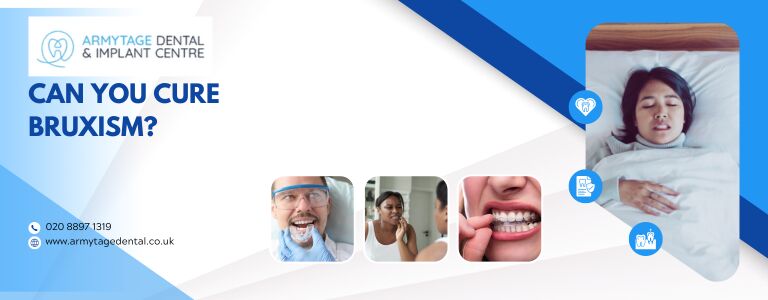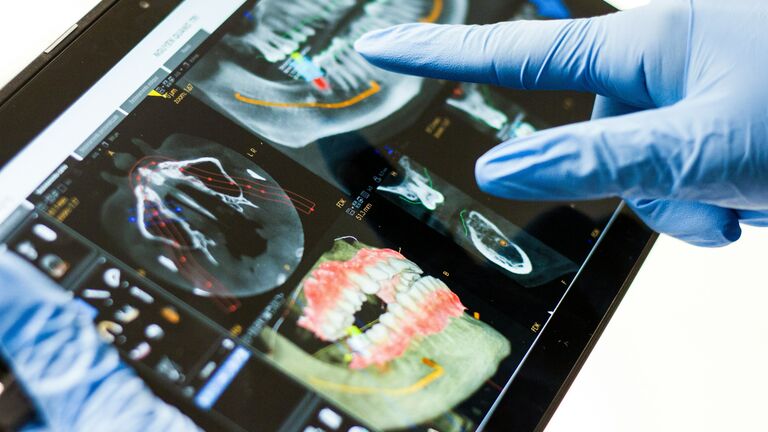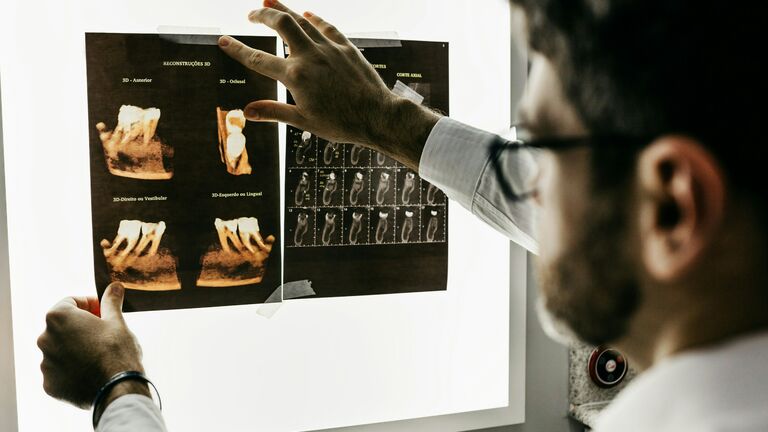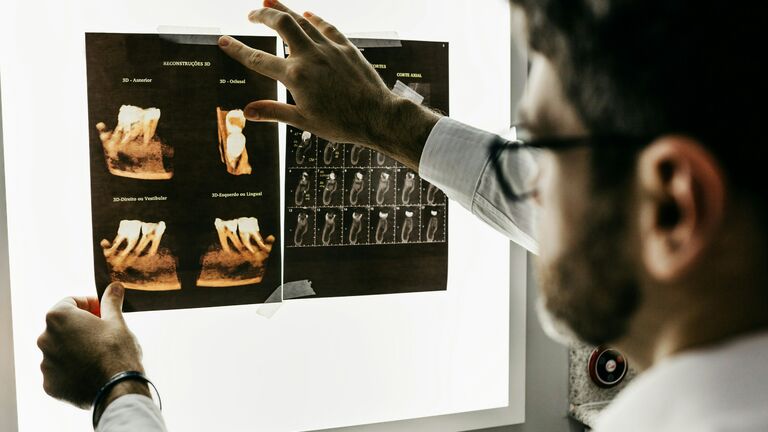
Bruxism (Teeth Grinding) - Symptoms and Causes
If you ever wake in the morning with a sore jaw and aching teeth that you can’t explain, it could be that you suffer from bruxism, otherwise known as teeth grinding. This common condition affects around 8-10% of the population. It simply means that you grind your teeth together, usually at night time when you are asleep, but you may do it unconsciously during the day.
What are the symptoms of bruxism?
Common symptoms of bruxism include wearing down of the teeth, cracks and chips on your teeth, a sore or aching jaw, headaches and limited mobility in your jaw. It’s usually worse in the morning when you wake up.
Teeth grinding is a natural reaction to stress and fear, so this is usually the most common reason for the condition, however it might also be linked with forms of obstructive sleep apnea. This occurs when you stop breathing at night, usually because your tongue falls to the back of your throat.

What can you do for bruxism?
The first step in treating bruxism is to speak to your dentist. If you suspect that you are grinding your teeth at night, you should visit the dentist to see if your teeth tell the same story. We can then work together to find the source of the issue to help put things right.
If your bruxism is caused by stress, the best course of action might be to address ways to reduce sources of stress in your life. You might try mindful practices like meditation or yoga to help bring your stress under control.
If your bruxism is related to obstructive sleep apnea, you may need to think about trying to lose some weight. Start small and try losing just 5% of your total body weight through changes to your diet and exercise routine. Many patients find that they are able to sleep better and enjoy more restful sleep when they address their weight.
Your sleep patterns could also be the cause of your bruxism. Those with irregular sleep patterns might be at higher risk of developing bruxism. This includes shift workers and those who work nights.
If your bruxism is caused by something you cannot easily change or control, your dentist may recommend a mouth guard you wear at night time. This will help to protect your teeth from the continual pressure of grinding. When you grind your teeth, they are subject to around 250 lbs of force, which can lead to extensive damage and breakage over time.

Can you cure bruxism?
There isn’t a cure for bruxism, but there are steps we can take to limit the damage. A custom fitted mouth guard that you wear at night time while you sleep can help to limit the damage to your teeth.
Addressing the root cause of the issue can also help you to get your teeth grinding problem under control. In some cases, it could be an alignment issue that is causing you to grind your teeth at night. If this is the case, you would have to opt for traditional fixed braces for the treatment, as your bruxism would rule you out for Invisalign treatment.
Final thoughts
If you keep waking to a stiff and aching jaw, it’s worth visiting your dentist to find out if you might be grinding your teeth at night. Your partner might be able to offer some insight too, as grinding your teeth produces a very distinct sound that they have noticed.
Thankfully, there are plenty of options for treating bruxism to help limit the damage and then bring your teeth grinding under control.
Call us to make an appointment
We are accepting new patients and our team are here to help
Call us now
Teeth Whitening Offer £270
Teeth Whitening and Hygiene offer for £270 until end of April 2021.

Invisalign FREE teeth whitening
Invisalign FREE teeth whitening
02.05.2024
Signs of a Failed Dental Implant

08.04.2024
5 Signs You Should See an Endodontist

Call us to make an appointment
We are accepting new patients and our team are here to help
